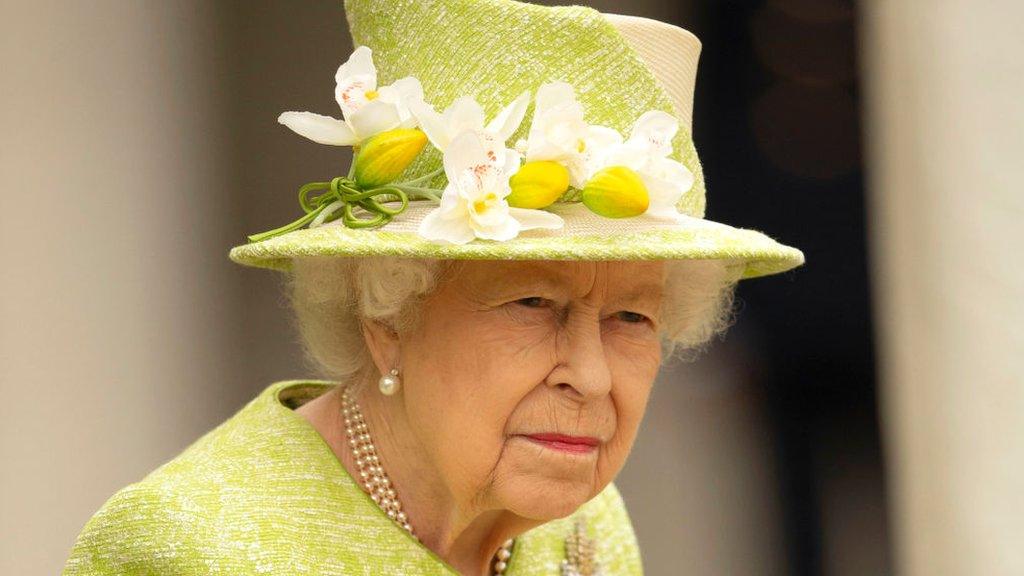Prince Philip: How deaths of public figures can affect others
- Published
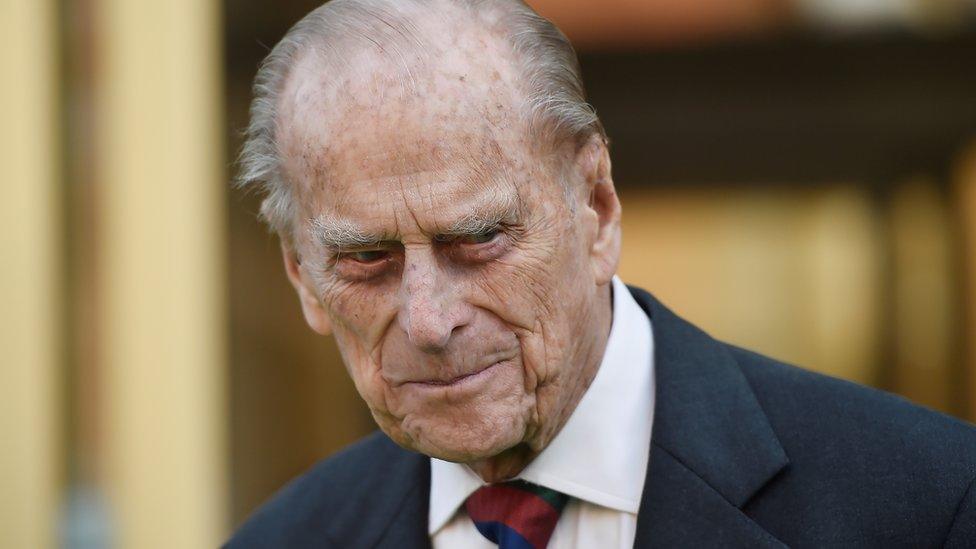
The duke's death was like losing "the grandfather of the nation", his son Prince Andrew said
Following the Duke of Edinburgh's death, tributes were paid to the man millions of people have known from afar for decades. According to his son, Prince Andrew, "we've lost the grandfather of the nation", but what sort of impact could his death have on those who never met him?
For some people who have been bereaved before, the duke's death will have triggered feelings of grief they might have felt for a family member or friend.
Prof Tony Walter, from the University of Bath, said there could be "an almost instinctive sense of gap when someone in the public eye dies", even if they had never met.
But different people's deaths can trigger a variety of emotions within different parts of society, he added.
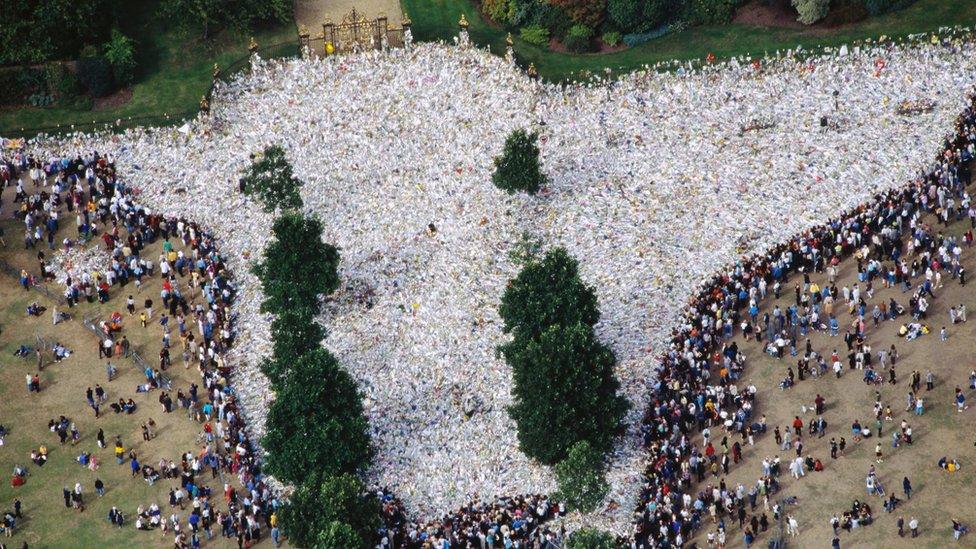
Thousands of flowers were laid outside Kensington Palace after the death of Diana, Princess of Wales
"When Princess Diana died, I am sure it raised all sorts of anxieties in families with children," Prof Walter, director of the university's Centre for Death and Society from 2011-15, continued.
"When the Queen Mother died it was more a reflection on the end of an era.
"Now, with Prince Philip, I am sure it is touching a lot of people who, like the Queen, are widowed in old age."
The biggest single group who have died with Covid-19 has been older men, but any death could trigger previous bereavements, he said.
Rosemary and Roger Cullimore, from Somerset, had been married for 49 years when he became ill and died, aged 94, in March 2019.
In the immediate aftermath she experienced many emotions but it was the practical things that floored her.
"I wish I had paid more attention because he did all the little DIY jobs around the house and he put the rubbish out. Then all of a sudden I was having to do everything by myself," Mrs Cullimore said.
Although 19 years her senior, the 77-year-old said Mr Cullimore was more agile than her and was very active until his last year.
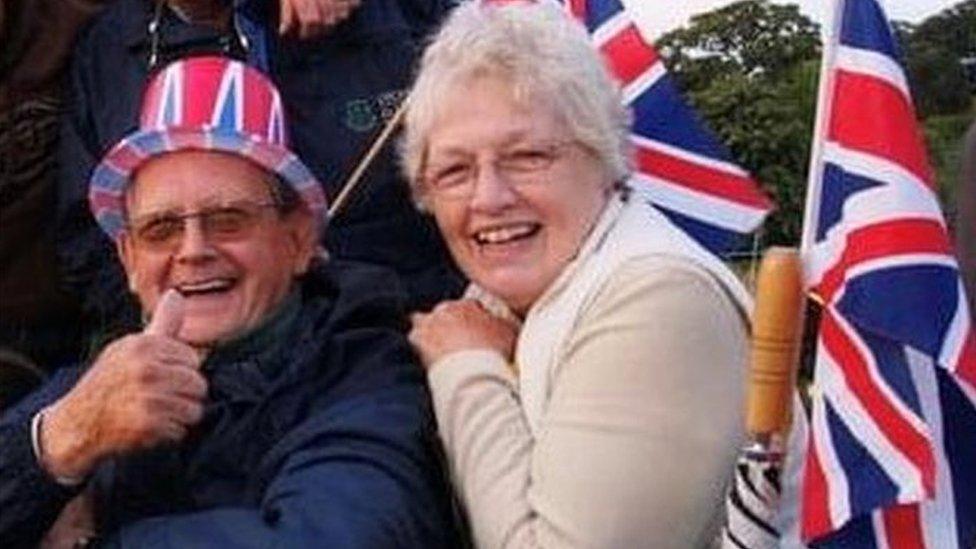
Rosemary was working as a manager in the health service when she met Roger, a hospital engineer
"I wish I had had a dog or something, especially with lockdown," she said.
"We had had our pets but because of our age, we had decided it wouldn't be fair for a dog if we had to give it up when we got older.
"But now I wish I had a pet because the main thing I miss is companionship. We did everything together.
"When my friends are doing something they will say come along, but then you are the odd one out, a third in the group.
"My family has been my saviour, my children and grandchildren."
The Queen has four children and eight grandchildren and was gifted two new corgi puppies during lockdown.
Throughout history there has been far more mourning for public figures, leaders, kings and queens than there has been for "ordinary people" Prof Walter said.
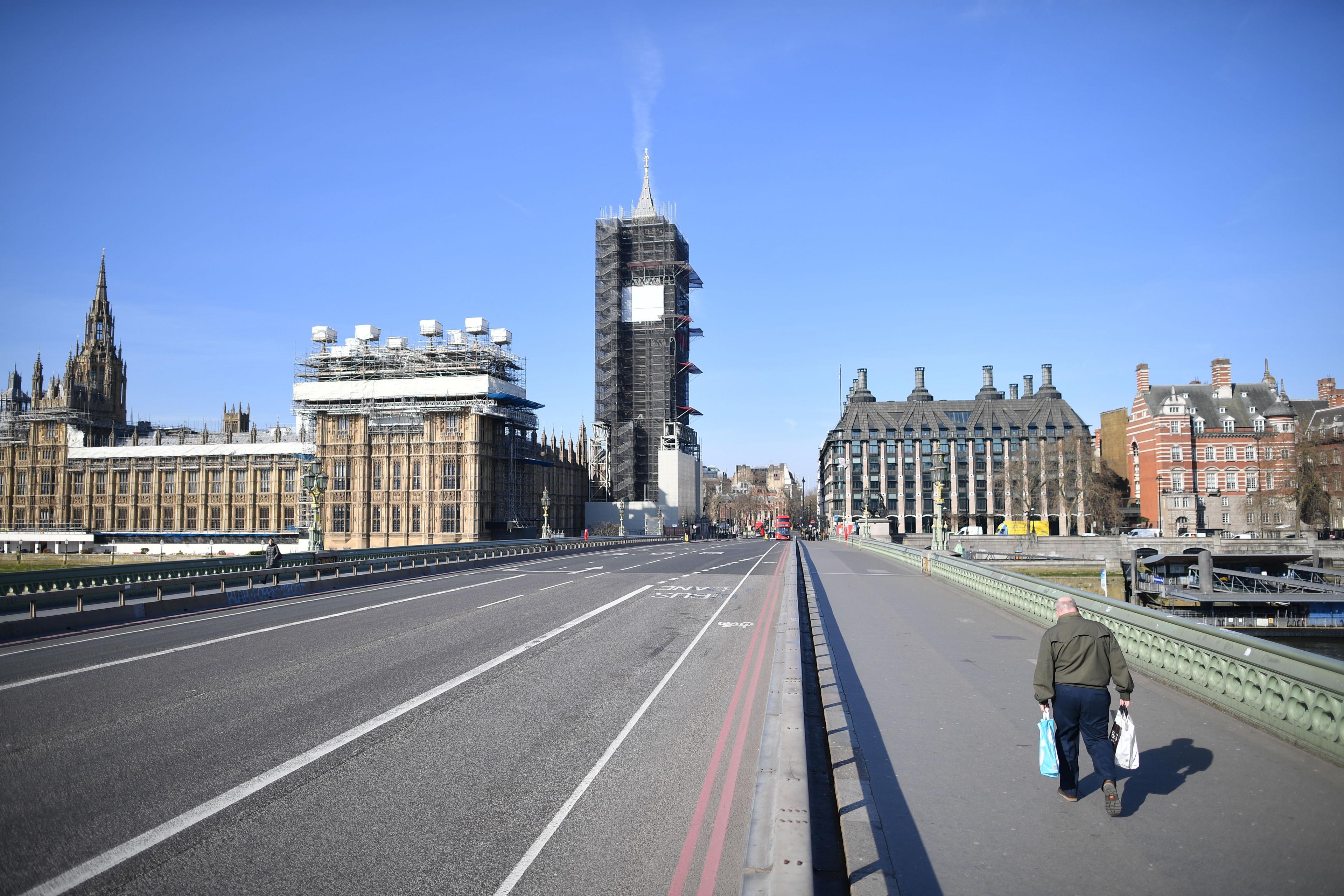
Dr Ahmed says lockdown means "we are looking for any point of connection...that we can make" to others
"I shed a tear when I heard the news," Mrs Cullimore said.
"Prince Phillip has always been in my life. He had always been there for the Queen but he had always been there for the country too.
"I never met him but I identified with him and her."
The death of a public figure also "reminds us that we're not going to be around forever," said Dr Nilufar Ahmed, who works at the University of Bristol.
The social sciences lecturer said the duke's death had "raised feelings of my own losses and my own grief".
She said there was also a natural connection, especially in light of the past year when people have been unable to experience the social interactions they might otherwise have done.
"When we see a connection, we feel safe; it reminds us who we are. Especially in lockdown, with so much uncertainty, we are looking for any point of connection that we can make," she said.
For some, an emotional connection might be forged between people who have entertained others throughout their lives, which is broken by their death.
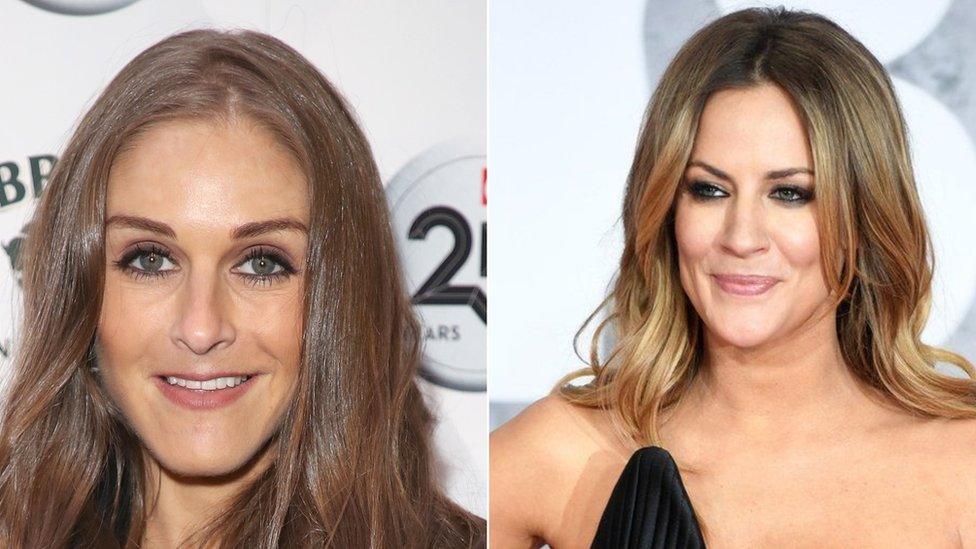
Nikki Grahame and Caroline Flack both lived their lives in the public eye before their deaths
The deaths of Big Brother star Nikki Grahame this month and TV presenter Caroline Flack in February 2020 could have had a profound impact on people who follow their lives online.
"With Prince Philip, we only know what we're allowed to know. With Nikki [Grahame], Caroline [Flack] - they're so human, accessible, posting on social media.
"So you feel a connection, and when you realise they're fallible it takes your breath away," said Dr Kate Woodthorpe, who also works at the University of Bath's Centre for Death and Society.
"Success doesn't come with a guarantee of long life. There's a huge sense of injustice, a sense that they had so much more to give."
"It's definitely been the hardest year of my life."
Posting on Twitter, one person commented: "Still so heartbroken by this. Fighting a disease for over 30 years and it still wins. It's just so sad. #NikkiGrahame."
Others on Twitter commented how triggering it was for them personally.
Counsellor Emma Cavinder, from Taunton, said the presence of some public figures was such, that "you feel like you do know them".
Her job brings her into close contact with bereaved teenagers and she says although young people can relate to stars, any sudden loss can be difficult to come to terms with.
Tom Aplin, from St Peter's Hospice in Bristol, said there was no fixed model people could turn to, to deal with grief.
He leads the emotional and psychological support team at the hospice, and said: "It all comes down to how grief is processed.
"If someone has been ill for a long time then their partner, consciously or not, is preparing to lose them."
Carole Henderson, from Grief UK, said it was "entirely natural" for people to have "overwhelming and conflicting feelings... even if it feels unnatural".
She said if people were feeling upset, they could perhaps "try to connect [with people] in every way that we can, using technology or being in the same outside space" so people can make eye contact together.
Mrs Cullimore, whose husband died two years ago, said keeping in touch with friends, even during lockdown, by text or phone, was a source of great comfort too.
"I'm so grateful that Roger died before all of this virus happened," she said, adding: "We might not have been able to visit him in hospital and the funeral would have been so different.
"I feel for those people experiencing loss now. It must make everything so much harder, even if you are the Queen."
If you have been affected by any of the issues in this article you can find help and support via the BBC Action Line.
- Published28 October 2020
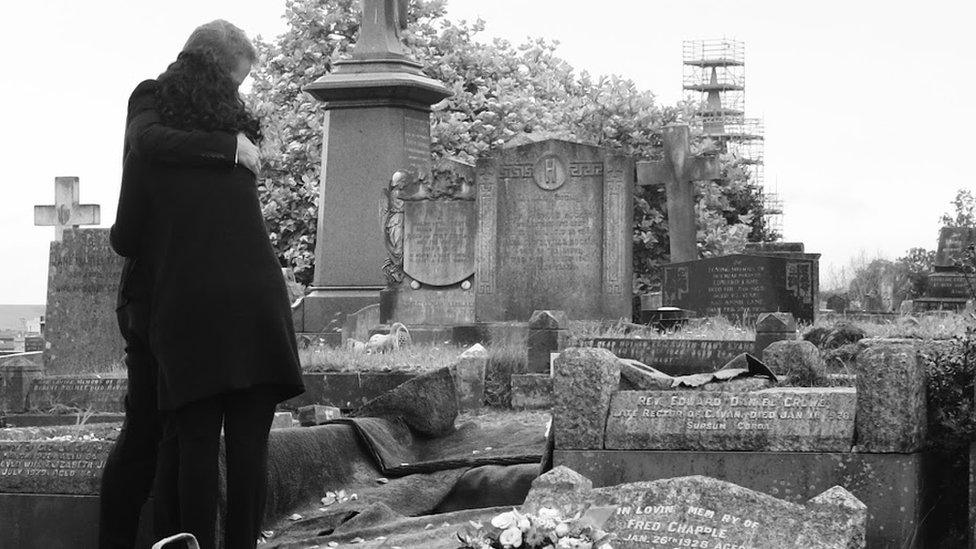
- Published11 April 2021
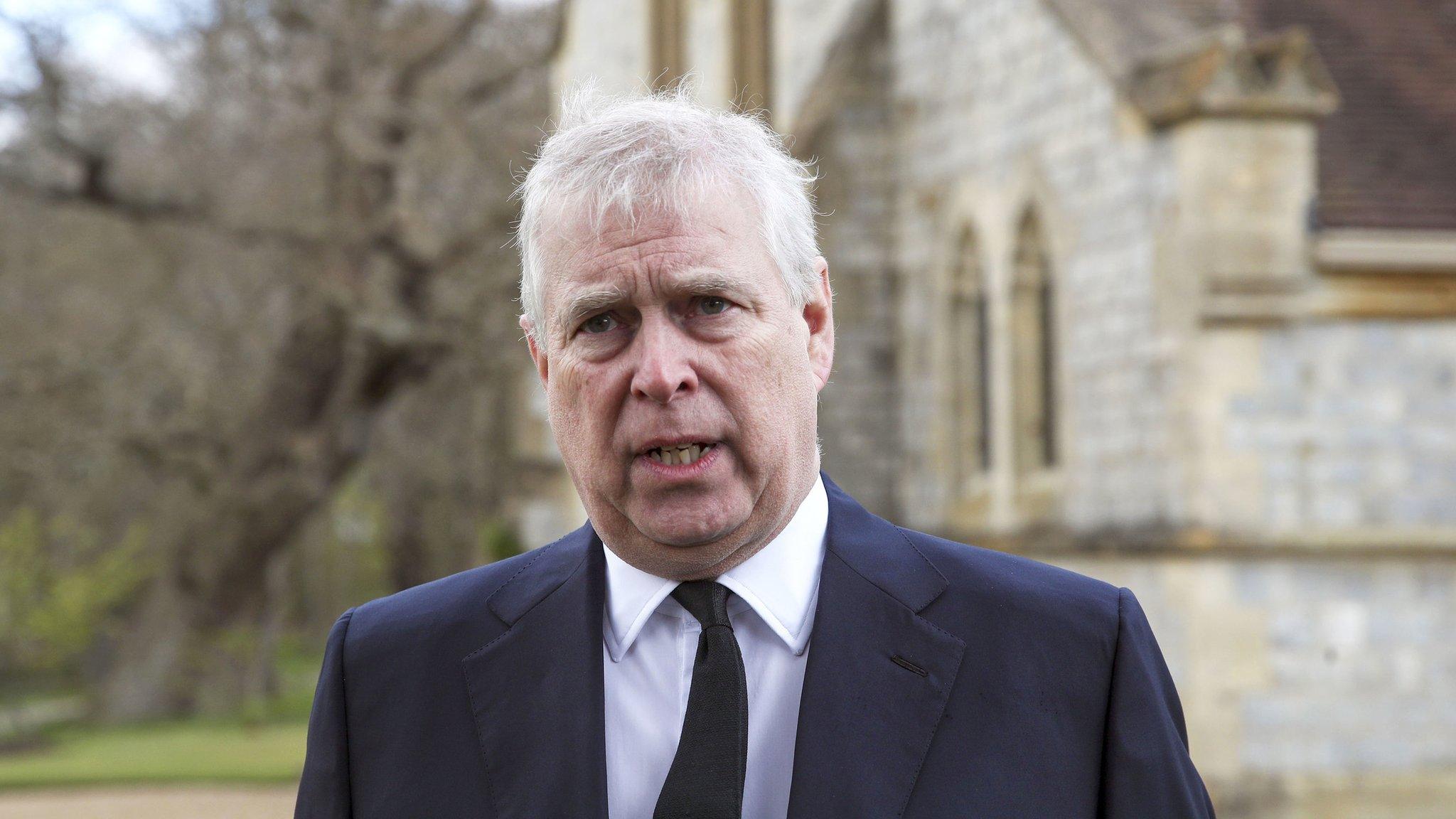
- Published10 April 2021
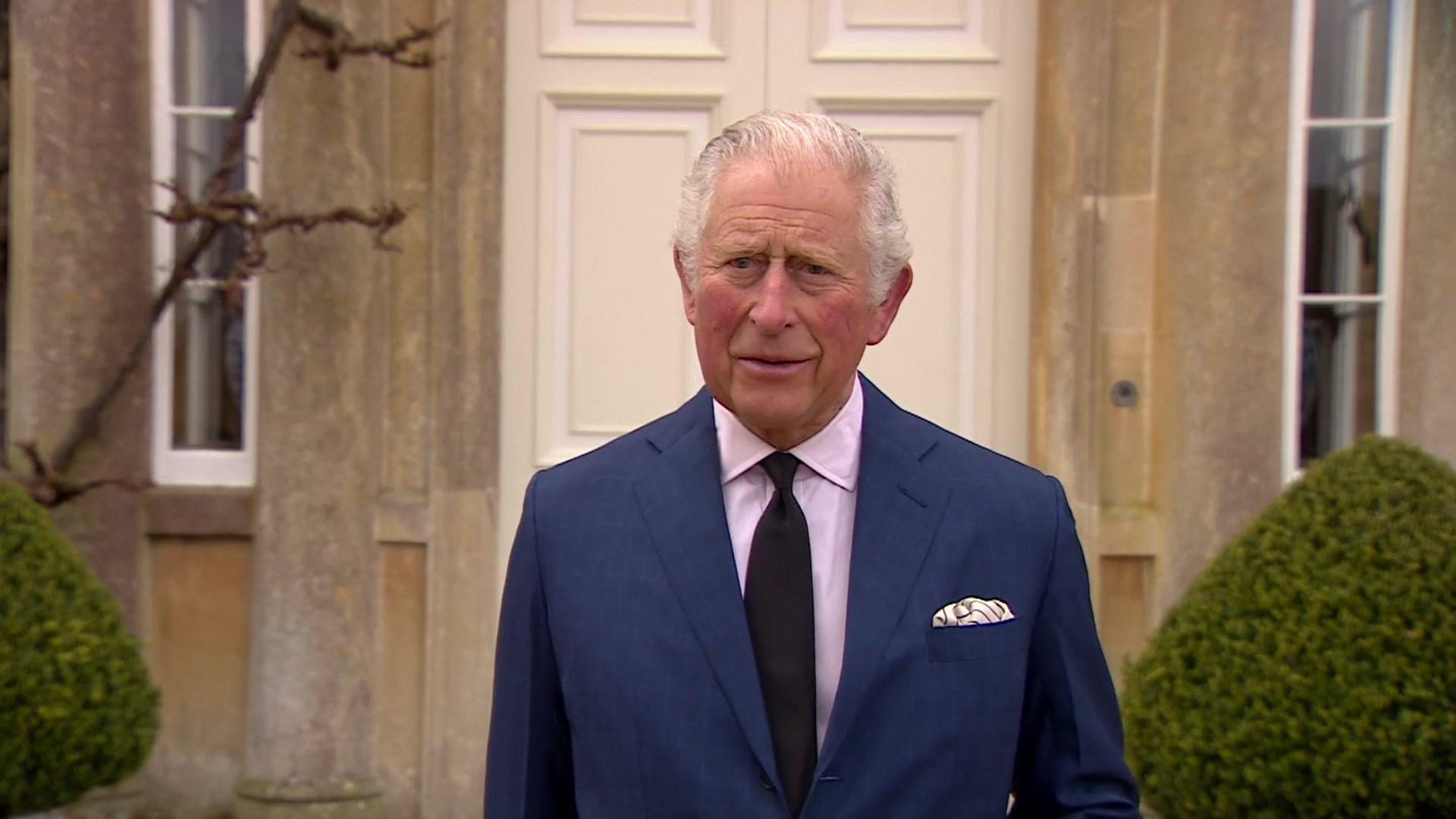
- Published12 April 2021
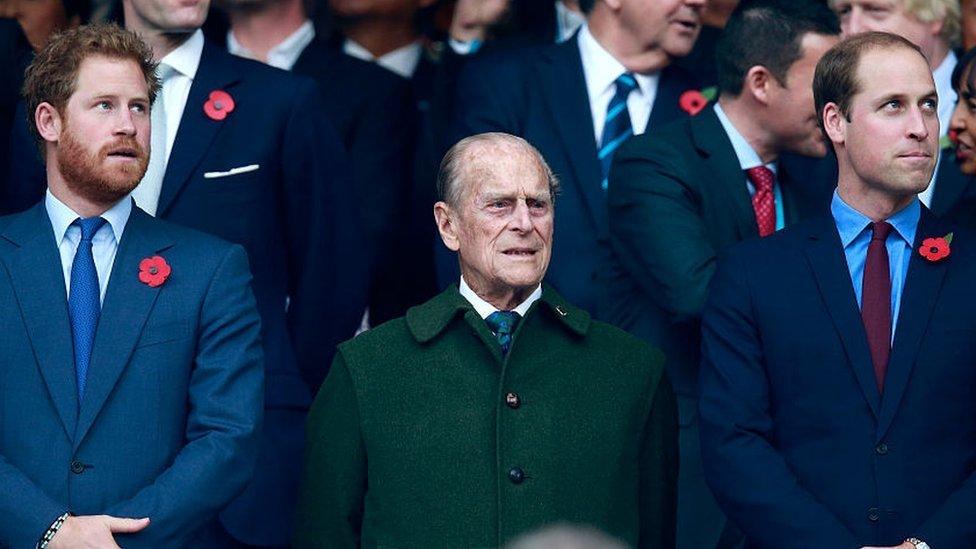
- Published14 April 2021
